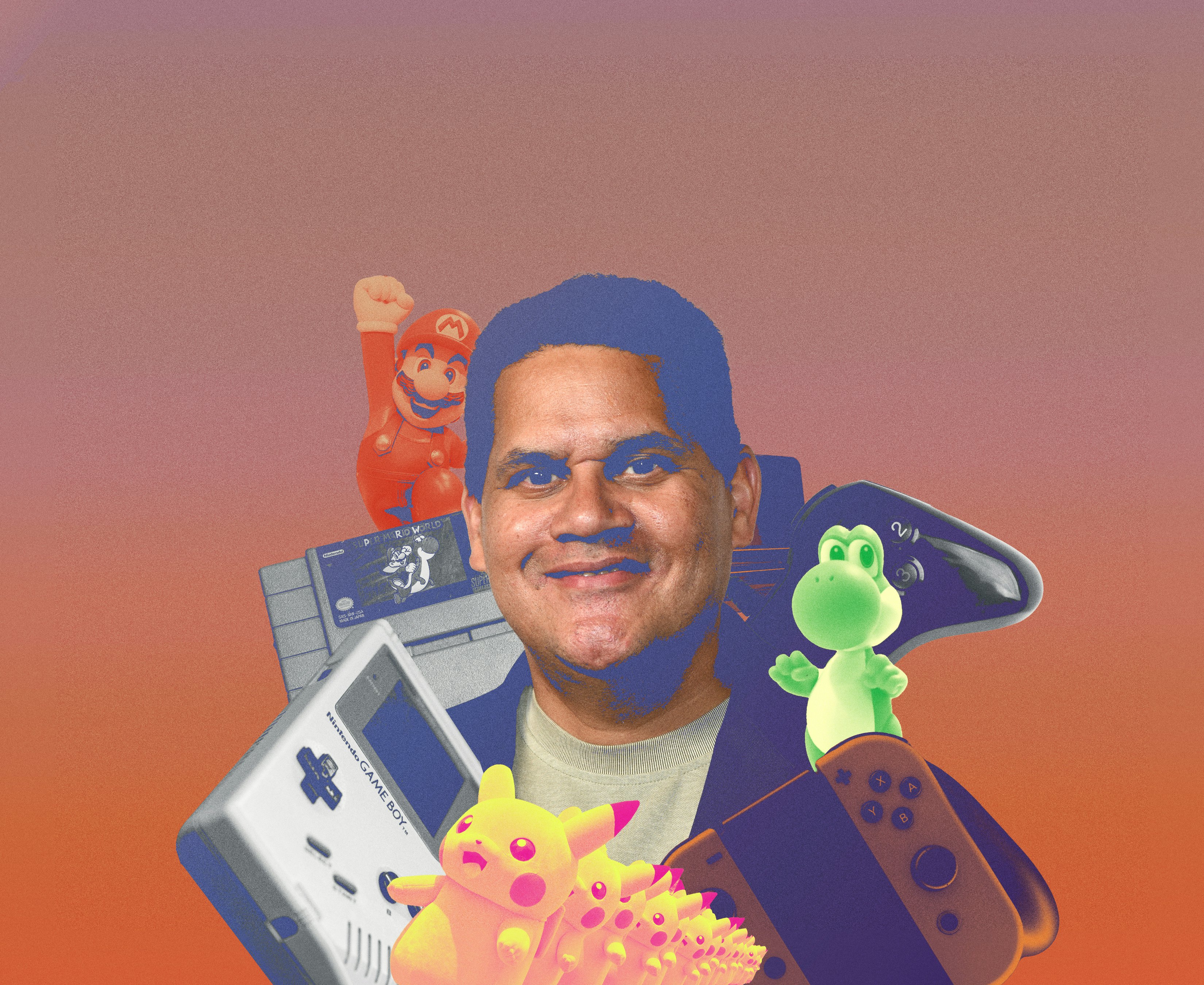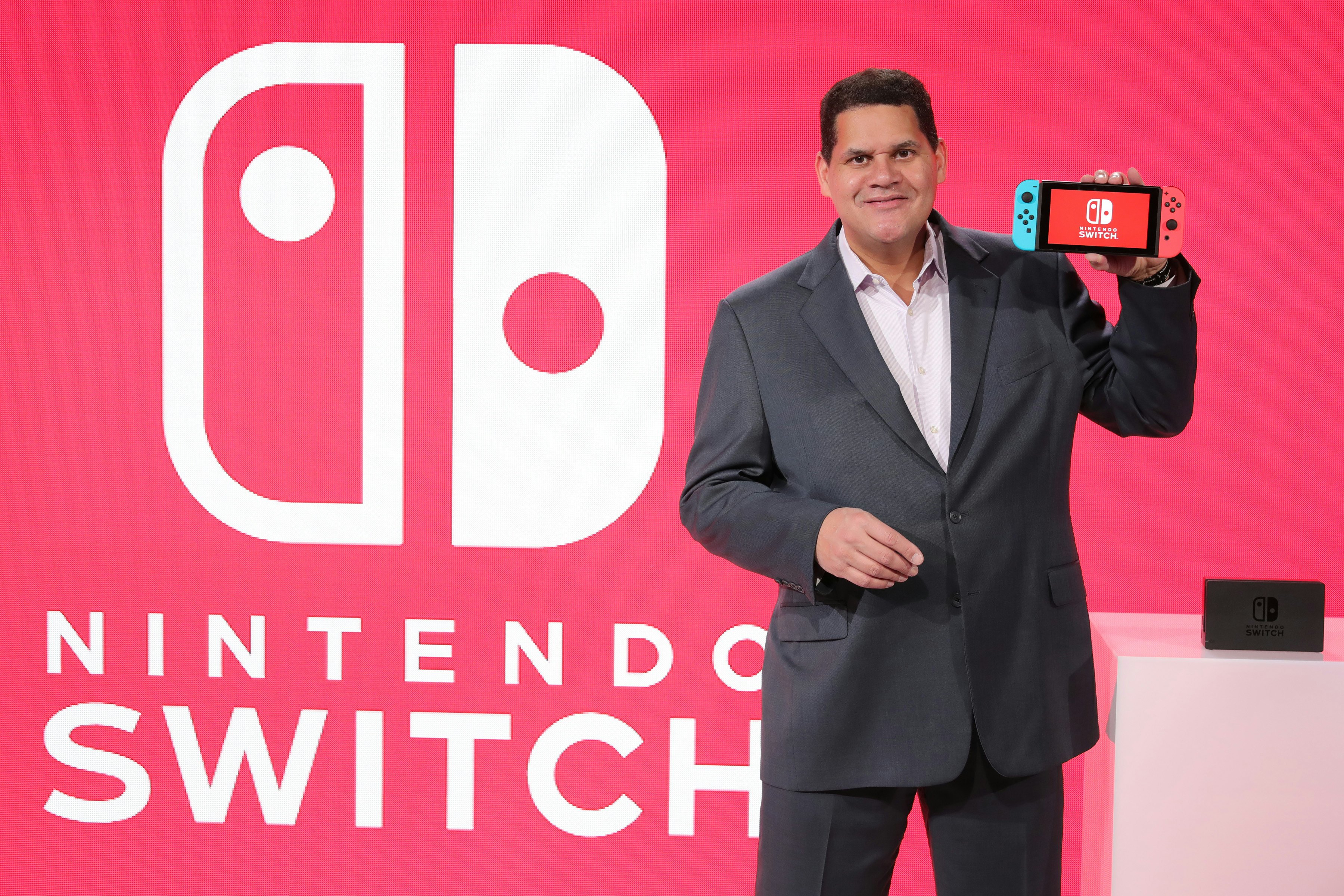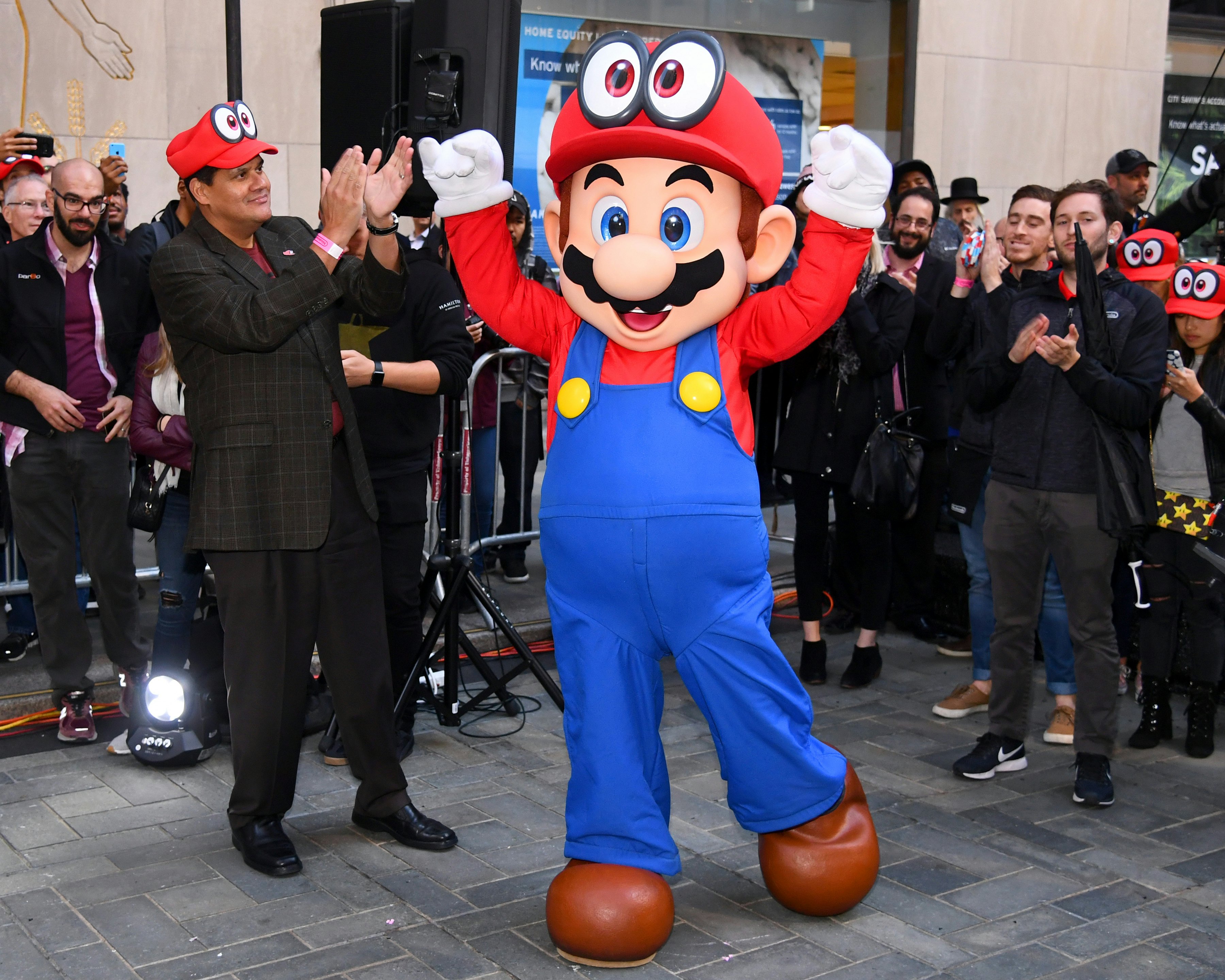
Reggie Fils-Aimé has never shied away from making bold bets about the future of video games.
The former president of Nintendo of America’s 15-year tenure at the company was marked by stratospheric hits (The Wii! The DS! The Switch!) and the occasional head-scratching miss (The Wii U! Nintendo Labo!).
Though he retired back in 2019, he’s just as optimistic about the future of the industry as ever — and still convinced that video games can make the world a better place.
That’s particularly the case when it comes to an oft-discussed, little-understood concept that’s likely to prompt a weary eye-roll from gamers and industry observers alike. Yes, Reggie Fils-Aimé wants you to give the metaverse a chance.
“I believe the true metaverse will have a common currency and common development infrastructure. It will be highly social in a way that's digital but also allows you to interact with your real-life friends and real-life experiences,” Fils-Aimé tells Inverse. “That's the way I define the metaverse, and I'm a believer in that vision.”

But Fils-Aimé’s vision of the metaverse isn’t the dreary sea of VR Zoom meetings touted by Mark Zuckerberg. It’s an extrapolation and expansion of the kinds of virtual worlds that are already intimately familiar to millions of gamers all over the world — experiences like Roblox and Fortnite, which have steadily evolved into a hybrid of both game and social platform, blurring the boundaries between real life and digital events. Still, he acknowledges that many companies have gotten a bit fast and loose with the term in their eagerness to jump on the bandwagon of the next big trend in gaming and tech.
“The term is being used — I would argue — excessively,” Fils-Aimé says. “Metaverse is a label that's being thrown at a variety of different initiatives. I'm old enough to remember that if you said something was tied to ‘the internet’ 20 years ago, all of a sudden valuations of companies would increase dramatically, even when they really had nothing to do with what was going on with the internet.”
“Any company that isn't experimenting with these technologies and approaches will be left behind.”
In 2022, everyone understands what the internet is, but that certainly wasn’t the case in the mid to late ‘90s. Popular culture was rife with anxiety about the unfathomable potential of a global, interconnected information network (see: The Net, or even The Matrix). That limbo state is essentially where we are now with the metaverse.
While his former employer (Nintendo) has said it has no current plans to venture into the metaverse, Fils-Aimé says it’s vital for game developers and console makers to explore and be receptive to new technologies, even in the face of pushback from critics.
“It's incumbent on leadership within all gaming companies to be open-minded to these technologies, to experiment with these technologies, and to figure out how they can be utilized in a way that benefits the player, that can deliver unique and differentiated experiences to your customers,” he tells Inverse.
Fils-Aimé’s watchful optimism extends to another controversial emerging technology: blockchain and NFTs. Amid the extraordinary volatility in the cryptocurrency market over the last year or so, executive leaders at game companies worldwide have been compelled to take a clear stance on integrating the technology into their upcoming releases. For shareholders, it’s an enticing new revenue stream. For gamers, it’s another form of predatory monetization with potentially dire environmental consequences.
Fils-Aimé falls somewhere in the middle.

“I am a believer in blockchain technology, and what it can potentially unlock in terms of keeping your content attached to you versus attached to the software or platform,” he says. “As a way to have content that I own, and that represents some sort of badge value, I think NFTs can be very interesting.”
However, he maintains these experiences need to be baked into the game design, not bolted on at the end: “It has to be part of the experience from the very start.”
“I don't believe it is something that is being addressed with passion and vigor across the entire industry.”
For the last several decades, the gaming industry has largely centered around two poles: Japan and the West. Particularly where the metaverse and social integrations in gaming are concerned, Fils-Aimé says he doesn’t expect gaming’s future to hew to the patterns of the past, partly because established regions have been slow to adapt to emerging innovation.
“Candidly, a number of China-based companies have been pushing the envelope in this space. Fifteen years ago, Japan was a center of influence for the video game industry. The centers of excellence are much more diverse today,” says Fils-Aimé. “Any company that isn't experimenting with these technologies and approaches will be left behind.”

But innovation in gaming isn’t just about emerging technologies. It’s also about proactively recalibrating the companies that make games from within to serve a diverse audience of players. In Fils-Aimé’s view, most game companies haven’t gone far enough to address the lack of representation at all levels of their organizations.
“There are some companies that are working hard at it. I'm still close with Phil Spencer over at Microsoft — I know this is important to him. But I don't believe it is something that is being addressed with passion and vigor across the entire industry,” he says.
Still, Fils-Aimé points out that cultivating more diverse creative and executive leadership in gaming needs to start before prospective candidates enter the job market.
“It really does begin from an educational issue, providing diverse audiences as much exposure as possible to STEM-oriented skills and training,” says Fils-Aimé. “In the state of Washington, core training in STEM education isn't as robust as it needs to be. The jobs that are created by Amazon, Nintendo, and Microsoft are greater than the candidate pool.”
Fils-Aimé also hopes to see the industry make further technological strides in accessibility in the years ahead, particularly on the hardware side. (Accessibility refers to design choices or options that allow players with motor, cognitive, or sensory differences to enjoy games more fully.) While Nintendo is widely regarded as making games and peripherals that are approachable to a variety of ages and skill levels, the company has lagged behind direct competitors Microsoft and Sony in the eyes of accessibility advocacy groups like AbleGamers.

As Fils-Aimé was preparing to retire in 2019, he says Nintendo was part of an industry-wide initiative that regarded Xbox’s Adaptive Controller “as a jumping-off point to create something that would be platform-agnostic and adaptable by any consumer.”
“Imagine an adaptive controller that you could play with your latest Xbox, PlayStation, or Nintendo platform. That's what we were working on three years ago,” he explains.
He isn’t certain if the project is still in development.
“My hope is that the effort has continued. I'm not sure if it has or has not,” Fils-Aimé says. “But also, my hope is that controller — and the ability for that controller to connect with all of the various systems — is launched and shared with consumers as quickly as possible.”
“My hope is that the effort has continued.”
He continues: “I do believe the best solution is an industry solution that can work for all of the dedicated gaming platforms and for PC, and can truly be tailored to the player depending on their physical capabilities and what they can do.”
Fils-Aimé’s vision of a platform-agnostic future might not be as far off as it seems. With recent innovations like Valve’s Steam Deck, the Xbox app for smart TVs, and the yet unnamed Logitech cloud gaming handheld, those familiar game boxes under your television might become antiques sooner than you think.
Inverse Luminaries profiles the most innovative and exciting people in and around the games industry for their insights on the future of the medium.







